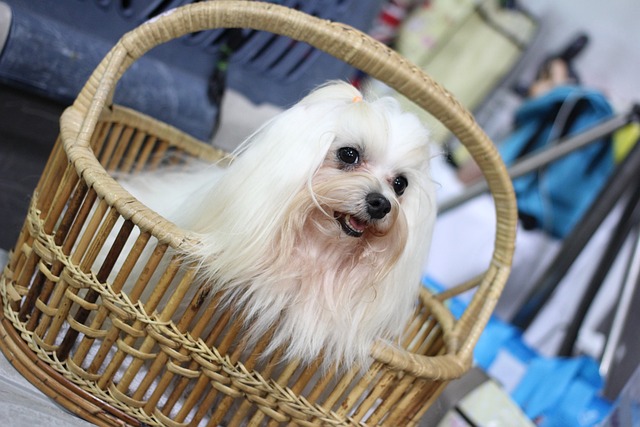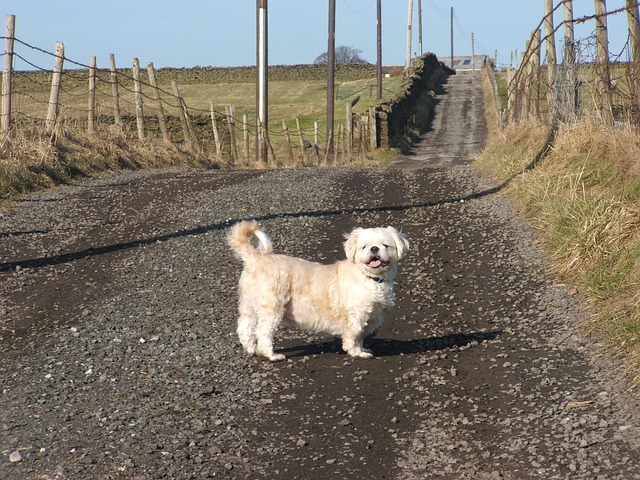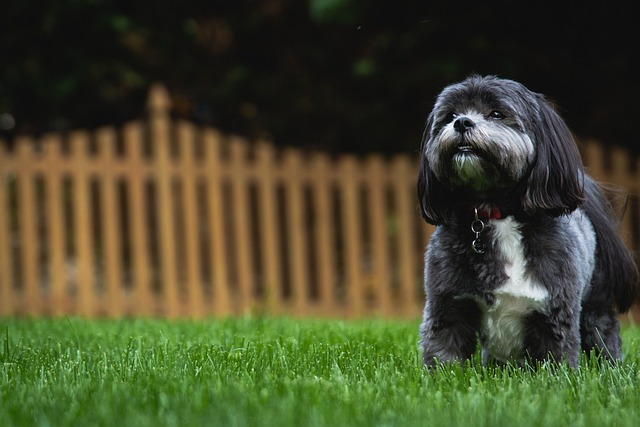Shih Tzus, popular for their cute appearance and affectionate nature, is sometimes labeled as the worst dog breed due to various reasons.
Their stubborn nature, excessive barking, separation anxiety, small size, fragility, etc. contribute to them as the worst dogs.
However, it is crucial to remember that individual behavior varies among dogs, and responsible ownership, training, and socialization can nurture a positive relationship with any breed, including Shih Tzus.
13 reasons why shih tzus are the worst dogs
People may consider Shih Tzus as the “worst” dog for various reasons. Some common factors contributing to this perception include their stubborn nature, excessive barking, grooming needs, and potential health issues. Let’s look at the below:
- Separation anxiety
Shih Tzus’ affectionate nature can lead to separation anxiety. Proper training and socialization, using desensitization and positive reinforcement, help them feel more comfortable when alone.
- Excessive barking
Shih Tzus are prone to excessive barking, a result of their breeding as watchdogs. Their vocal nature may cause disturbance to neighbors and stress for owners. Proper training, the “quiet” command, and mental stimulation can help manage and reduce their barking tendencies.
- Insufficient as Watchdogs
Although Shih Tzus are barkers, they are not effective watchdogs due to their small size, as they may not provide protection against intruders.
- High maintenance grooming
Shih Tzus’ long, luxurious coats require daily grooming to prevent matting and tangling, which can be painful for the dog. Regular baths, nail trimming, and ear cleaning are essential for hygiene and to avoid issues like eye irritation and skin infections. Proper grooming is crucial to their overall health and well-being.
- Prone to health issues
Shih Tzus are susceptible to respiratory, eye, and dental issues, as well as allergies and skin problems. Regular dental care and awareness of their short snouts are vital to maintain their overall health and well-being.
- Stubborn nature
Shih Tzus’ stubborn nature can make training challenging due to their independence and strong-willed personalities. Their breeding as companion dogs and prey drive contribute to this trait. However, with patience, consistency, and positive reinforcement, a strong bond can be formed with these dogs.
- Aggression
Shih Tzus may exhibit aggressive behavior due to their small size, feeling vulnerable and threatened by larger dogs or strangers. Their stubborn nature can also hinder training efforts, contributing to aggression.
- Child unfriendly
Shih Tzus are not ideal for families with young children as rough play can lead to injuries, and their sensitive nature may not tolerate poking or prodding.
- Costly ownership
Owning Shih Tzus can be costly, particularly with regular grooming and potential veterinary expenses for health issues.
- Limited Lifespan
Shih Tzus have a 10-16 year lifespan, which can be heartbreaking for owners who form strong bonds with their beloved pets.
- Challenging house training
Shih Tzus may be tough to house train, leading to frustration for owners and potential accidents indoors without frequent outdoor breaks.
- Not pet friendly
Shih Tzus can be unfriendly towards other pets, showing territorial and aggressive behavior towards dogs and cats.
- Constant Attention
Shih Tzus exhibit clingy behavior and demand continuous attention from owners, often becoming anxious or destructive when left alone for extended periods.

Tips on how to provide the best care for shih tzus
Providing the best care for Shih Tzus requires a commitment to their well-being and unique needs. These adorable and affectionate dogs can be wonderful companions when given the right care and attention. Here are some tips to ensure your Shih Tzu lives a happy and healthy life:
Exercise
While they don’t require intense exercise, regular walks and playtime are essential to keep them mentally and physically stimulated. Provide toys and interactive activities to keep them entertained.
Dental Care
Shih Tzus are prone to dental issues, so regular teeth brushing and dental chews are crucial for maintaining their oral health.
Nutrition
Feed your Shih Tzu a well-balanced diet that meets their nutritional needs and helps maintain a healthy weight. Consult with your veterinarian for appropriate dietary recommendations.
Grooming
Shih Tzus have long, luxurious coats that require daily brushing to prevent matting and tangling. Regular professional grooming sessions are essential to maintain their appearance and hygiene.
Training
Start training early to establish good behavior and manners. Use positive reinforcement techniques, such as treats and praise, to encourage obedience. Consistency and patience are key to successful training.
Socialization
Expose your Shih Tzu to various people, animals, and environments during their early development. Proper socialization helps reduce fear-based aggression and makes them more adaptable in different situations.
Regular Check-ups
Schedule routine veterinary check-ups to monitor their health, update vaccinations, and address any medical concerns promptly.
Safety
Create a safe environment for your Shih Tzu, removing any hazardous items and providing a comfortable bed or crate for rest.
Patience and Understanding
Each Shih Tzu is unique and may have their quirks and preferences. Be patient, understanding, and attuned to their needs, and your Shih Tzu will be a happy and cherished member of your family.
Love and Attention
Shih Tzus thrive on affection and attention from their owners. Spend quality time with them, engage in interactive play, and provide reassurance to build a strong bond.
Why are some reasons that people like shih tzu?
There are several reasons why people like Shih Tzus:
Affectionate Nature
They are known for their loving and affectionate personalities, making them great companions.
Playful and Lively
Shih Tzus are playful and energetic, bringing joy and entertainment to their owners.
Low Exercise Requirements
They don’t need excessive exercise, making them suitable for individuals with a more relaxed lifestyle.
Adorable Appearance
Shih Tzus have a cute and fluffy appearance that many people find irresistible.
Small Size
Their small size makes them well-suited for apartment living or households with limited space.
Loyal and Devoted
Shih Tzus form strong bonds with their owners and are devoted companions.
Suitable for All Ages
They are a versatile breed, making them suitable for families, seniors, or individuals living alone.
Reduced Allergenicity
Some people with allergies may find Shih Tzus more tolerable than other dog breeds due to their minimal shedding.
Good with People
Shih Tzus are generally friendly and get along well with people of all ages.
Easy to Groom
While their coats require regular maintenance, their small size makes grooming more manageable compared to larger breeds.
However, it’s important to remember that each dog’s personality is unique, and what appeals to one person may not necessarily apply to another.

Why do shih tzus become aggressive?
There are many reasons that shih tzus become aggressive:
Frustration
Frustration can lead to aggressive outbursts, especially if a Shih Tzu is unable to express their needs or communicate effectively.
Health Issues
Underlying medical conditions or pain can cause a normally gentle Shih Tzu to become irritable and aggressive.
Past Trauma
Dogs that have experienced past trauma, abuse, or neglect may be more prone to aggressive behavior.
Territorial Instincts
Shih Tzus can be protective of their territory and may become aggressive towards strangers or other animals that they perceive as intruders.
Lack of Socialization
Insufficient exposure to different people, animals, and environments during their early development may lead to fear-based aggression.
Resource Guarding
Shih Tzus may display aggression if they feel their possessions, food, or toys are being threatened.
Fear and Anxiety
When faced with unfamiliar or stressful situations, Shih Tzus may respond with aggression as a defense mechanism.
Genetics
Aggressive tendencies can sometimes be influenced by genetics and breed traits.
Lack of Training
Insufficient or improper training can result in a lack of discipline and boundaries, leading to aggression.
Lack of Social Skills
Improper or limited socialization during their formative months can hinder a Shih Tzu’s ability to interact with other dogs and people appropriately.
Environmental Changes
Sudden changes in their environment, such as moving to a new home or encountering loud noises, can cause anxiety and trigger aggression.
How do I stop my shih tzu from being aggressive and biting?
Addressing aggression and biting in a Shih Tzu requires patience, consistency, and professional guidance. Here are some steps to help you manage and reduce aggressive behavior
Maintain a Calm Environment
Create a calm and stable environment at home, as stress can contribute to aggressive behavior.
Regular Exercise
Ensure your dog gets enough physical and mental exercise, as this can help reduce anxiety and aggressive tendencies.
Avoid Punishment
Never use punishment or harsh methods, as they can escalate aggression and erode trust between you and your pet.
Seek Professional Advice
Consult a qualified dog trainer or animal behaviorist to assess the underlying cause of aggression and create a personalized training plan.
Positive Reinforcement
Use positive reinforcement techniques, rewarding your Shih Tzu for good behavior with treats and praise to encourage calm and non-aggressive responses.
Socialization
Gradually expose your dog to different people, animals, and environments to help reduce fear-based aggression and increase their confidence.
Set Clear Boundaries
Establish clear boundaries and rules, ensuring your dog understands what behavior is acceptable and what is not.
Avoid Triggers
Identify situations or stimuli that trigger aggression and try to minimize your dog’s exposure to them whenever possible.
Be Patient and Consistent
Changing behavior takes time, so be patient and stay consistent with your training efforts.
Redirection
If your Shih Tzu displays signs of aggression, redirect their attention to a toy or engage them in a positive activity to diffuse the situation.
Note: Remember that every dog is distinctive, so personalize your strategy to your Shih Tzu. To protect your dog and others, get professional treatment if aggressiveness persists.
How do you discipline a shih tzu?
Below are some tips on how to discipline a shih tzu:
- Set clear boundaries and establish consistent rules.
- Use positive reinforcement techniques like treats and praise to reward good behavior.
- Avoid using punishment or harsh methods, as they can be counterproductive.
- Redirect undesirable behavior to more appropriate activities.
- Be patient and consistent in your approach to discipline.
FAQs
Do shih tzu get their feelings hurt?
Shih Tzus, like other dogs, can display behaviors that suggest they may be feeling stressed or unhappy. Therefore, shih tzus experience emotions differently from humans, so it’s crucial to recognize that their feelings are not as complex and understand their behaviors within canine communication.
Why does my shih tzu growl and bite?
Shih Tzus may growl and bite due to fear, aggression, pain, resource guarding, or lack of socialization and training. Identifying the root cause is crucial to address the behavior effectively. If the issue persists or raises concerns, consult a professional dog trainer or veterinarian for guidance and assistance.
Is a shih tzu the right dog for me?
Deciding if a Shih Tzu is the right dog for you depends on your lifestyle, preferences, and ability to meet their needs. If you prefer a small, affectionate, and loyal companion, enjoy regular grooming, and have time for socialization and training, a Shih Tzu could be a great match for you.
Are shih tzus high maintenance?
Yes, Shih Tzus are considered high-maintenance dogs. Their long, luxurious coats require regular grooming to prevent matting and tangling. They also need frequent baths, nail trimming, and ear cleaning. Additionally, Shih Tzus may require professional grooming, which adds to the time and effort needed to keep them well-groomed.
Final verdict
While Shih Tzus may have some challenges, they also have endearing qualities that make them beloved pets for many. If you are considering getting a Shih Tzu, it’s crucial to research the breed thoroughly, understanding its needs and characteristics. Proper training, socialization, and grooming are essential to ensure a happy and well-adjusted companion.
For a comprehensive understanding of Shih Tzus and whether they are the right fit for you, don’t miss this informative article. It offers valuable insights into their behavior, health considerations, and tips on how to provide the best care for these adorable dogs.
Whether you are a seasoned dog owner or a first-time pet parent, this article will empower you with the knowledge to make an informed decision about welcoming a Shih Tzu into your home.

